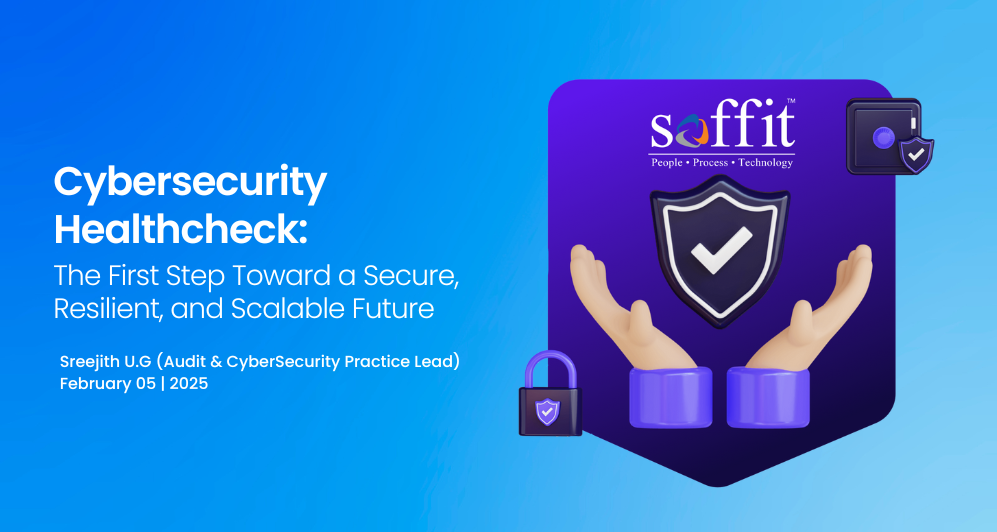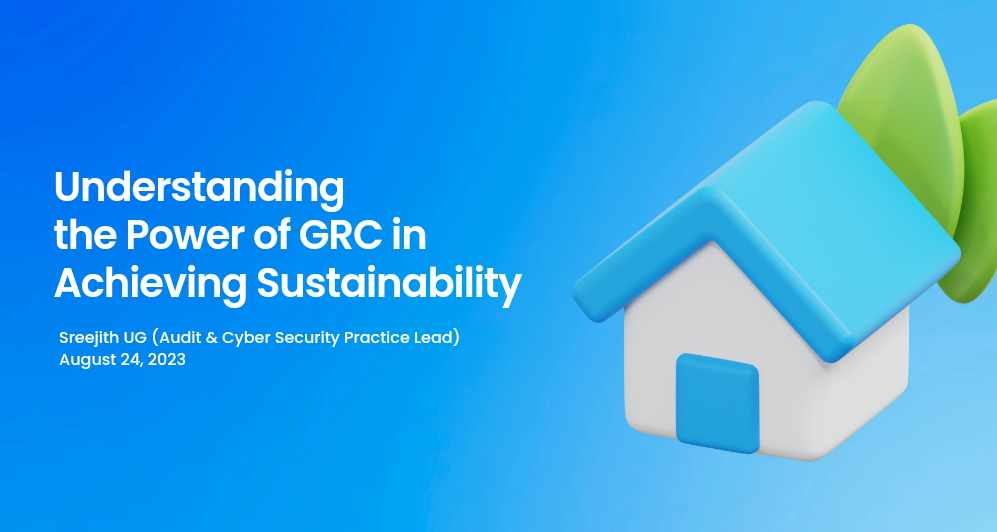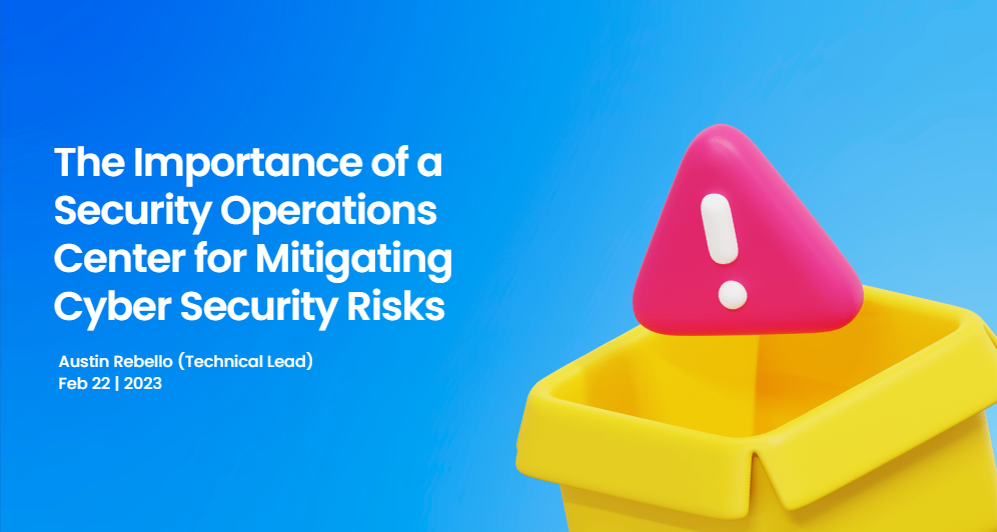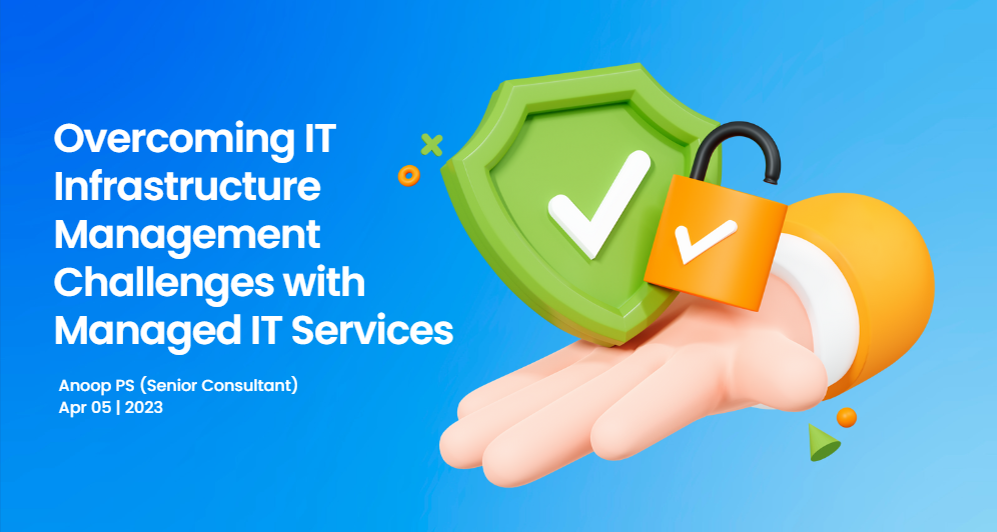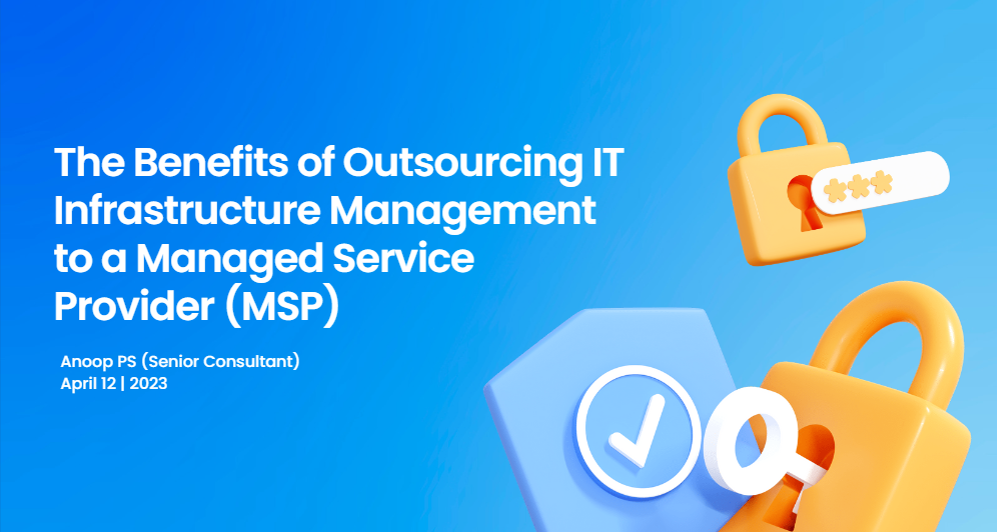sales@soffit.in | support@soffit.in | helpdesk@soffit.in
+91 1800 103 8 912 | +91 94 950 93 000

Top Stories
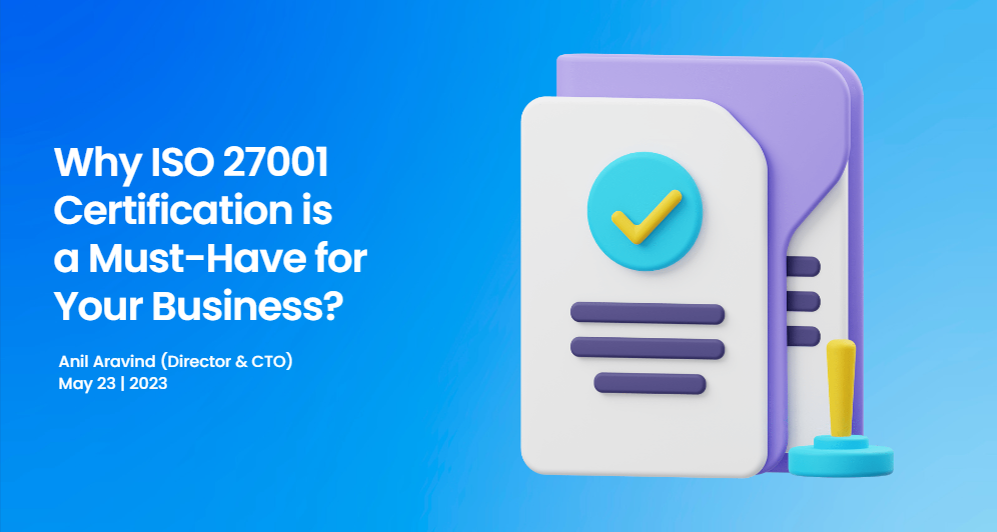
Protecting sensitive information and its availability has become a crucial responsibility for businesses in today's digital landscape. Sensitive information, such as financial records, intellectual property, and client data, is at risk from cybersecurity threats and attacks, which can lead to financial losses, reputational harm, and legal penalties. Compliance with various legislation and standards is essential to protecting this information, and ISO 27001 provides a structured framework for organizations to manage and protect their sensitive data.
What is ISO 27001?
ISO 27001, or International Organization for Standardization Certification, is an internationally recognized standard that sets requirements for an information security management system (ISMS). In simple terms, ISO 27001 acts as a roadmap for businesses to follow to manage and protect their sensitive information, including data, hardware, software, and networks, from unauthorized access, disclosure, modification, and destruction.
The ISO 27001 certification is not an aspect you can earn once and then put aside. It is an ongoing strategy that demands constant monitoring, review, and adaptation of your information security management system. By putting ISO 27001's requirements into practice, your company can be confident that essential safeguards are in place to protect your information assets.
Update to ISO/IEC 27001:2022
The latest edition of the ISO/IEC 27001:2013 standard, ISO/IEC 27001:2022, was launched in October 2022, replacing the previous version from 2013. This update reflects the evolving cybersecurity landscape and technological developments, with a renewed emphasis on considering IT service as a critical component of business operations.
Several updates have been made to the new version, including a revised risk assessment methodology, updated controls, and new guidelines for implementing information security controls. The importance of ISO 27001 certification for enterprises is emphasized in this update, as it provides a complete framework for managing information security risks and ensuring regulatory compliance.
Is ISO 27001 mandatory?
While ISO 27001 certification is not mandatory by law, it is an essential investment for any business that values the security of its sensitive data. Failure to establish sufficient security measures to safeguard their sensitive data can lead to losing client confidence, reputation, and ultimately, your business.
In addition, various industries, including the government, banking, and healthcare, mandate adherence to rules, laws, and standards that require strong security measures to protect sensitive data. Businesses could come upon unanticipated dangers or weaknesses in their information security, much as a vehicle might run into unforeseen roadblocks or detours while travelling. ISO 27001 offers a thorough and widely accepted framework, making it simpler for businesses to adhere to legal obligations and showcase their commitment to security best practices.
The ISO 27001 certification is a critical tool for businesses when it comes to information management. To ensure the confidentiality, integrity, and availability of your information assets, consider these key aspects:
1. Access control ensures that only authorized personnel can access sensitive information. Implementing appropriate access controls, such as passwords, biometric authentication, or multi-factor authentication, can help.
2. Data backup and recovery procedures can help ensure that critical information can be recovered in the event of a data loss or system failure. This includes regular backups of data, testing of backup and recovery procedures, and secure storage of backups.
3. Appropriate network security measures, such as firewalls, intrusion detection systems, and encryption can protect your networks from unauthorized access. It is important to monitor regularly and update these security measures to ensure they remain effective.
4. Incident management plans help businesses address security incidents and breaches, including procedures for reporting, investigating, and mitigating the impact of such incidents. This can help minimize damage and prevent future incidents from occurring.
5. Compliance with relevant laws, regulations, and industry standards, such as the GDPR, HIPAA, and PCI DSS is essential for businesses. Compliance demonstrates a commitment to protecting sensitive information and can help avoid legal and financial consequences for non-compliance.
What are the benefits of ISO 27001 certification for businesses?
ISO 27001 certification is an asset for businesses that brings numerous benefits:
ISO 27001 improves cybersecurity posture
By systematically identifying potential risks and threats, assessing their potential impact, and implementing appropriate controls to mitigate those risks, you can reduce the risk of likelihood of security breaches and avoid financial, legal, and reputational consequences. This can help you safeguard your data, systems, intellectual property, and protect your business against cyber threats.
ISO 27001 reduces incidents and costs
As a business owner, you know that security incidents can be costly in terms of both time and money. By implementing ISO 27001, businesses can minimize the likelihood and impact of security risks, which can translate into significant cost savings associated with data breaches and system downtime. You can also avoid the potential reputational damage that comes with security breaches and demonstrate your commitment to data protection and privacy.
ISO 27001 boosts competitiveness and customer confidence
Having an ISO 27001 can provide businesses with a competitive edge by proving to your customers and partners that you consider information security seriously and have implemented the globally recognized best practices. You can enhance customer loyalty, win new businesses and improve revenue growth.
ISO 27001 ensures regulatory compliance
Each industry will have specific regulatory requirements for information security and data protection. ISO 27001 certification brings certain process maturity to the organization which can significantly contribute to the readiness of various compliance certification requirements such as the GDPR, HIPAA, SOC2, and PCI DSS. It provides a framework for an information security management system (ISMS) that addresses the confidentiality, integrity, and availability of information, as well as risk management and efficiency.
ISO 27001 enhances efficiency
Implementing ISO27001 can minimize overall business risk by streamlining the operational processes. By optimizing information security management, you can increase the efficient use of resources, improve productivity and respond more effectively to evolving market conditions. This can help you broaden your consumer base, foster your business, and achieve long-term success.
Key Takeaways
As the digital era continues to bring up new cybersecurity risks and attacks, businesses cannot afford to ignore the importance of having a comprehensive and flexible information security management system in place. Organizations must have a logical framework established for managing and protecting the digital data they possess. And what better roadmap than ISO 27001?
ISO 27001 establishes a tried-and-true method to strengthen your cybersecurity posture, boost client confidence, and maintain your competitive edge in the market. Businesses can highlight their commitment to safeguarding sensitive information, strengthen their cybersecurity posture, and guarantee regulatory compliance by acquiring ISO 27001 accreditation.
Therefore, if you're a business owner trying to safeguard the confidential information held by your company and keep up with emerging cybersecurity threats, think about implementing the ISO 27001 standard and earning certification.
Read Also:
Planning and Implementing ISO 27001: Best Practices and Common Challenges

Soffit Infrastructure Services Pvt Ltd
Novel MSR Building,
Marathahalli, Bengaluru,
Karnataka 560037
administrative office
Soffit Infrastructure Services (P) Ltd
34/1441, Punnakkal, Elamakkara PO
Kochi 682026, Kerala, India
support
support [at] soffit [dot] in
helpdesk [at] soffit [dot] in
+91 1800 103 8 912
administration
info [at] soffit [dot] in
careers [at] soffit [dot] in
+91 8138 9042 30


Terms of use | Privacy Policy | Contact us
© 2025 Soffit Infrastructure Services Pvt Ltd. All Rights Reserved
Designed & Developed by Websoul Techserve





